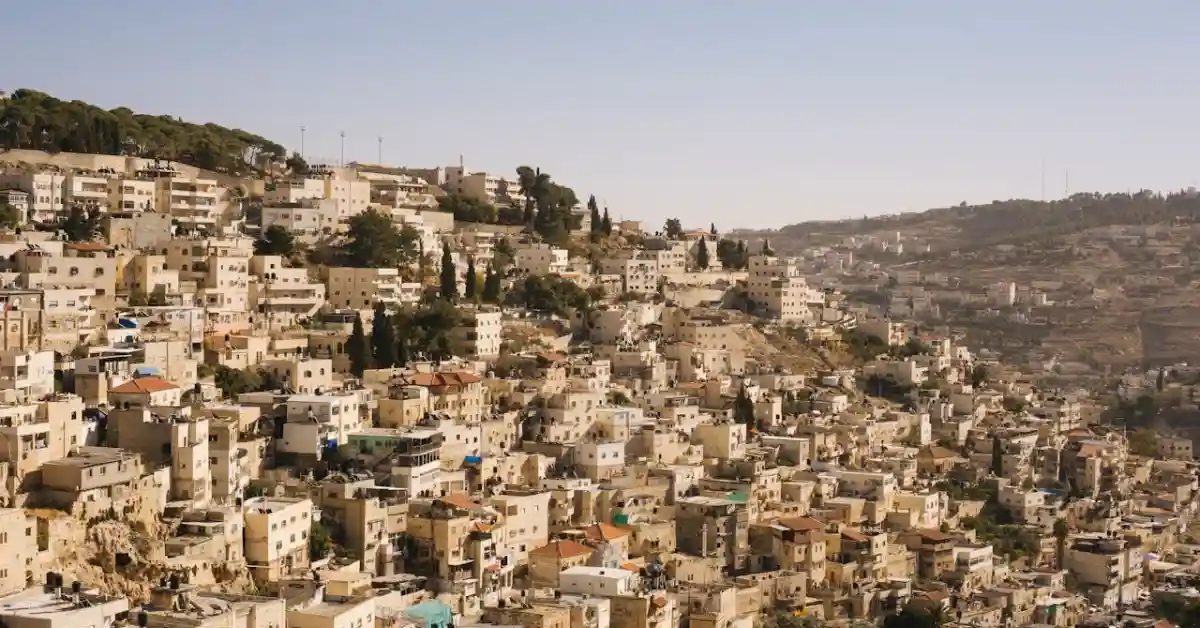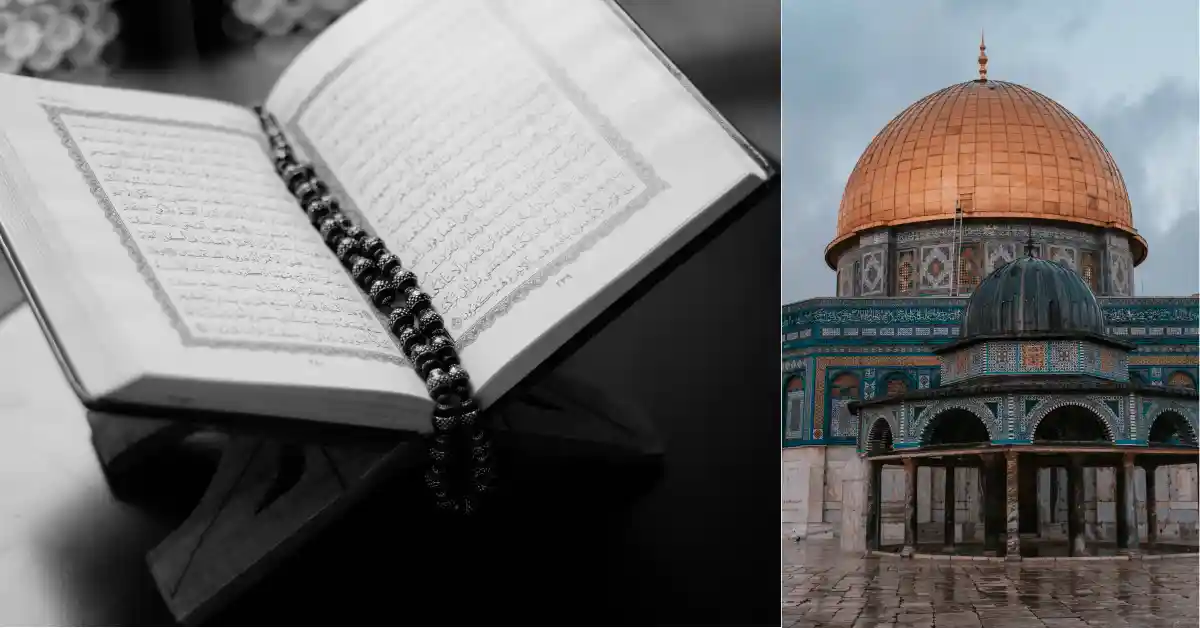According to the divine law, it is necessary for all the servants of Allah (swt) to live in this world by doing those things that will make the scale of good deeds heavy and grant them the opportunity to enter Paradise on the Day of Judgment. Every human being must make every effort to do this, but it is not right for anyone to be complacent about their actions, thinking that such and such an action will be enough for their salvation; because none of us knows whether our actions are acceptable to Allah or not.
Conveyance of Reward and Prayers for forgiveness
Also, when a person leaves this world by acting in accordance with the courage and success granted by Allah, it is recommended for those close to him to continue to arrange for the conveyance of reward and prayers for forgiveness for his relatives and loved ones, as much as they can. The living praying for the dead and conveying the reward is a cause of reward for them as well, and a cause of forgiveness and elevation of ranks for the dead. (Al-Fatawa al-Hindiyyah: 5/350).
However, this is a temporary arrangement of reward; therefore, one should also try to convey the permanent reward to the deceased as much as possible, and the method for this is that a good deed should be done on behalf of the deceased that people will continue to benefit from, for example, dedicating land for a good cause, etc. (Bukhari: 2762) It should also be noted that for conveying the reward, it is not a condition that the person to whom the reward is being conveyed must have died; rather, the reward can also be conveyed to the living. (Shaami: 1/605)
It has been found that among the verbal and physical acts of worship, the good deed that each person does individually in his own home for himself; One performs voluntary prayers, observes voluntary fasts, recites Tasbeeh, recites, performs voluntary Hajj or Umrah, performs Tawaf, and one only has the intention that the reward for it reaches such and such a loved one or friend, and that is what is meant by the reward. The reward that was meant for you will also be given to you, and all the other people for whom you have made the intention will also receive their full reward. (Ahsan al-Fatawa: 8/169).
want to know about https://baitularqam.com/etiquette-of-visiting-madina/
Justification for the distribution of Rewards
Those who do not believe in the distribution of rewards say that the Holy Quran states: And that man gets only what he works for. (An-Najm: 39) While in his commentary on this blessed verse, Allamah Razi says: The answer is that if a person does not try to benefit from the charity of his relatives by believing in himself, then their charity will never benefit him; because a person will get only what he strives for (by believing in himself). Also, in “Tafsir Abu Sa’id” it is stated: The intercession of the Prophets (peace be upon them), the seeking of forgiveness of the angels (peace be upon them), the supplication and charity of the living, for the deceased, and many other beneficial matters that cannot be counted, the actions of the deceased do not interfere in all of them; but the beneficialness of the aforementioned matters depends on faith and its improvement. If these things (faith and its correctness) are not there, then nothing (let alone one’s own good deeds) will benefit anyone. (Tafsir Kabir: 7/768).
The answer of the Mu’tazilah interpreted verse
The Mu’tazilah interpreted this verse as: It has been argued that the reward for one’s actions cannot be achieved even by knowing another and they deny the transmission of reward. The answer to this is that there is a benefit in man and there are two types of benefit: one is reward, the other is the characteristic that arises in the doer from it,
so here the second type of benefit is meant, not the first type due to other texts. (Ashraf Al-Tafsir: 4/103) Also, this interpretation of the verse is interesting that a person is entitled to the reward only for his own actions, he does not have the right to receive the reward for someone else’s actions; but if Allah Almighty, out of His bounty, grants him the reward for another action without his entitlement, then this is His mercy on which no restriction can be imposed; therefore, Allama Ibn Taymiyyah says that the reward can be transmitted to another person, and it is proven from many hadiths that Allah Almighty, out of His bounty and generosity, conveys that reward to the dead. Because generally, a person bestows reward upon another only when he has done something good to him or has done other good deeds. (Tawzih al-Quran: 1633).
The position of Ahlus Sunnah wal Jama’ah
The position of most scholars of Ahlus Sunnah wal Jama’ah is that a person can give the reward of his voluntary acts of worship, whether they are financial or physical, or a combination of both, to other living or dead people, and there is no religious prohibition in this. Therefore, if a person wants to convey the reward of his voluntary prayers, fasting, Hajj and Umrah, or recitation of the Holy Quran, etc. to his deceased or living relatives, there is no problem with that, the only condition being that these acts are voluntary and no reward has been taken for them in this world. (See Majmoo’ Fatawa Ibn Taymiyyah: 24/366, Biday’ al-Sana’i: 2/454, etc.) It is narrated from Imam Malik and Imam Shafi’i (may Allah have mercy on them) that the reward of recitation, etc. does not reach others; However, it is also clear in the books of Shafi’i jurisprudence that if, after performing these acts of worship, a person prays that Allah Almighty will convey his reward to so-and-so, then in this sense, his reward will ultimately reach someone else and there will be no room for disagreement; therefore, it is not correct for some people to strongly criticize the deceased for the sake of conveying the reward.
Method of Delivering Esaal Sawab
Do the delivery of rewards in the same way as the righteous predecessors used to do, without any restrictions or limitations, help the poor secretly from lawful wealth according to your ability, and whatever you can, finish the Quran etc. yourself (by reading as much as possible) and deliver it to them, or spend time in the cemetery before burial in useless superstitions, and at that time, keep reciting some of the words of God; rather, this time is more suitable for helping the dead; because as soon as a person’s breath stops, the affairs of his afterlife begin. It is stated in the Hadith that the Prophet… buried Hazrat Saad bin Mu’adh and recited some Tasbeeh etc.,
Which saved him from the narrowness of the grave. Therefore, no one forbids the delivery of rewards; however, they forbid the forbidden and abominable things, which do not bring reward and also waste wealth. (Islah Al-Rumash: 141 by Tasreef, Ahsan Al-Fatawa: 8/169) If you cannot do more, recite Qul Ho Allah 3 times and forgive me, which will give you the reward of the entire Quran.
This is even better than finishing ten Qurans collectively. Allah does not look at small or large amounts, but sincerity and intention are seen. Therefore, the Holy Prophet (PBUH) says that if one of my companions gives a handful of dates in charity and a non-companion gives gold equal to Mount Uhud, he will not reach this level.
This difference is between sincerity and lack of sincerity; because the sincerity of a companion cannot be that of a non-companion. (Fatawa Rahimiyah: 1/463 Saleh) In short, there is no specific method of receiving reward specified in the Sharia, nor is there a restriction on any day, nor is there a requirement to recite any specific dhikr, nor is it necessary to finish the Holy Quran. Rather, the reward of any voluntary worship that can be performed physically and financially with ease can be conveyed to the deceased. (Referenced from: Fatawa Mahmudiyyah: 3/87, Karachi).
Grades of Delivering Esaal Sawab
The following details should be kept in mind regarding the different forms of delivering rewards:
(1) The best and most excellent form is to distribute cash to the deserving; because it is not known what they need.
(2) The second level is to give dry food that they can cook and eat themselves whenever they want.
(3) The third level is to cook and feed themselves and the best form is to cook one or two meals daily and feed the deserving. All the deserving and undeserving gather at one time to cook; rather, the community eats more, as is the custom (showing off is good in this; but no reward is received). In order to deliver rewards in the Holy Quran, special friends should be told to recite the verses of the Quran in their respective places according to their ability and convey the rewards. The collective form is also not suitable in this; because it often involves praising the deceased, and there is no sincerity. (Jawahir al-Fiqh: 3/287).
Transferring rewards to non-Muslims
Transferring rewards and praying for forgiveness for a disbeliever is neither useful nor permissible. (Kifayat al-Mufti: 9/326) Understand this issue in such a way that in order to receive rewards in the Hereafter, it is necessary to open an account through faith. When someone has not opened that account, you cannot transfer rewards from your bank of good deeds to them.
Taking a vow to deliver a reward
Some people take a vow to deliver a reward; but a vow to deliver a reward is not valid; because there is no obligation in its nature and it is a general rule that whatever is not obligatory in its nature, a vow cannot be made with it. And although it is obligatory in its nature to give charity; but the real purpose here is to deliver a reward to the soul of the deceased, the vow of charity is a consequence and even in a valid vow, the determination of the place and time and the appointment of a beggar are not necessary; rather, there is the option of changing it. (Imdad-ul-Ahkam: 3/30).




Hello, you used to write wonderful, but the last several posts have been kinda boringK I miss your super writings. Past few posts are just a little out of track! come on!